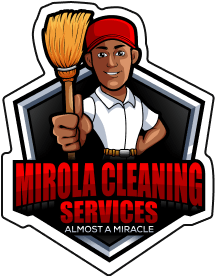TL;DR: Keep your carpets fresh and toxin-free with natural cleaning solutions like vinegar, baking soda, and dish soap. Regular cleaning improves air quality, extends carpet life, and eliminates bacteria. Avoid over-wetting and harsh scrubbing to prevent damage. While DIY methods work, professional cleaning is best for stubborn stains and deep-set odors.
Introduction
In this blog, we will trach you how to clean carpets without harsh chemicals that are toxic to your health.
As we all know, when it comes to our homes, carpets are an integral part as they provie comfort, style, and insulation. However, they also act as a magnet for dirt, allergens, and bacteria, which can negatively impact your home’s air quality and your health.

To maintain a cleaner and healthier home, regular carpet care is essential. In this guide, we’ll discuss natural cleaning solutions, common pitfalls to avoid, and when professional cleaning services are the best option.
Why Regular Carpet Cleaning Matters
1. Improves Indoor Air Quality
Did you know carpets act as air filters, trapping dust, pet dander, and pollen? If left uncleaned, these allergens can trigger respiratory issues like asthma. According to the Environmental Protection Agency (EPA), regular carpet cleaning reduces airborne pollutants and improves indoor air quality.
2. Extends the Lifespan of Your Carpet
Dirt and debris act like sandpaper on carpet fibers, causing premature wear and tear. Frequent vacuuming and deep cleaning preserve the texture and color of your carpet, making it last longer.
3. Eliminates Bacteria and Odors
Spills and pet accidents can lead to bacterial growth and foul odors. Deep cleaning prevents mold and bacteria from thriving in your carpets.
Natural & Chemical-Free Carpet Cleaning Methods
Many commercial cleaners contain harsh chemicals that can be harmful to pets and children. Here are safe, eco-friendly alternatives that work just as effectively:
a. White Vinegar & Water – The Stain Fighter
White vinegar is a natural disinfectant that helps remove stains and neutralize odors.
How to Use:
- Mix equal parts white vinegar and warm water in a spray bottle.
- Lightly spray the stained area and let it sit for 10 minutes.
- Blot with a clean cloth (never rub!).
- Allow to air dry.
Pro Tip: Always do a patch test to ensure vinegar doesn’t discolor your carpet.
b. Baking Soda & Water – The Odor Neutralizer
Baking soda is excellent for absorbing musty odors and freshening up carpets.
How to Use:
- Vacuum your carpet to remove loose dirt.
- Sprinkle a generous amount of baking soda over the area.
- Use a soft brush to rub it in.
- Let it sit for a few hours (or overnight for deep odors).
- Vacuum again to remove excess powder.
c. Salt & Soda – Quick Spill Solution
For accidental spills, act fast with salt and soda to prevent stains from setting.
How to Use:
- Blot up as much of the spill as possible with a dry cloth.
- Pour a small amount of club soda over the stain.
- Sprinkle salt over the wet area and let it sit for 10 minutes.
- Vacuum once dry.
d. Dish Soap, Warm Water & Vinegar – The Grease Buster
For greasy stains, this simple DIY mixture works wonders.
How to Use:
- Mix one tablespoon of dish soap, one-fourth teaspoon of vinegar, and a quart of warm water in a bucket.
- Use a soft brush to gently scrub the stain in circular motions.
- Blot the area with a dry towel to remove excess moisture.
- Let it air dry completely.
Carpet Cleaning Mistakes to Avoid
To prevent damage, avoid these common mistakes:
- Over-Wetting – Too much water can lead to mold growth.
- Using Too Much Cleaner – Excess product can leave a sticky residue, attracting more dirt.
- Scrubbing Stains Vigorously – This can push stains deeper into the carpet fibers.
- Skipping Regular Vacuuming – Vacuum at least twice a week to prevent dirt buildup.
When to Hire a Professional Carpet Cleaning Service
While DIY cleaning methods are effective, there are times when professional help is needed. Consider hiring experts when:
- Your carpet has deep-set stains that don’t respond to home remedies.
- There’s a lingering musty smell despite repeated cleaning.
- You notice allergy symptoms worsening at home.
- It’s been over 12 months since your last professional carpet cleaning.
Choosing the Right Carpet Cleaning Service:
- Look for companies using biodegradable, non-toxic cleaning solutions.
- Check online reviews and testimonials.
- Compare pricing and service guarantees.
FAQs About Carpet Cleaning
How often should I deep-clean my carpet?
It depends on foot traffic. High-traffic areas (living rooms, hallways) should be deep cleaned every 6–12 months. Bedrooms and low-traffic areas can be cleaned annually.
Can I use hydrogen peroxide on my carpet?
Yes, but with caution. 3% hydrogen peroxide works on stains, but it can bleach some carpets. Always test in a hidden spot first.
What’s the best way to dry a carpet after cleaning?
Use fans, open windows, or a dehumidifier to speed up drying. Avoid stepping on damp carpets to prevent dirt transfer.
Conclusion
A well-maintained carpet not only enhances your home’s appearance but also promotes a healthier environment.
By using natural cleaning solutions and following a regular cleaning schedule, you can extend your carpet’s lifespan and keep your space fresh.
For tough stains and deep cleaning needs, professional carpet cleaners can provide a thorough, hassle-free solution.
Whether you’re tackling DIY cleaning or calling in experts, prioritizing carpet hygiene will always be worth the effort!
